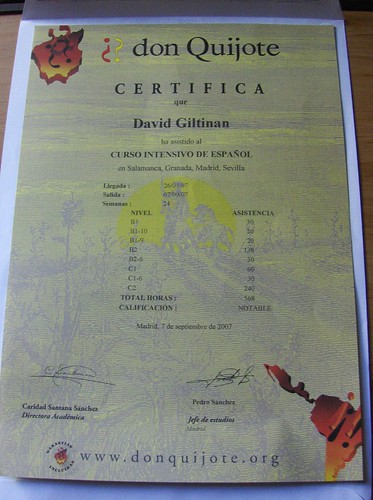"But David", I hear my imaginary reader ask, "¿what of the life of the mind allí en España? ¿What is up in the vast exciting world of the eSpanish intellectual?"
I thought you'd never ask. Well, over the last week or so, two events have dominated the eSpanish intellectual landscape:
The first was the forced departure, a little over a week ago, of the director of the
Biblioteca Nacional, Rosa Regàs. The proximate cause of her departure was the disappearance, the previous week, of two 15th century maps from the collection, removed from Ptolemy's
Cosmografía. Regàs clearly took the fall for the robbery, having had little option but to resign after the Minister for Arts and Culture blamed her publicly for negligence, adding - somewhat ungraciously - that she had accomplished "nothing" in her three-year tenure as director.
Things heated up when Regàs announced publicly, in an interview with a Catalan radio station, that she knew the identity of the thief, an Argentine investigator who had been sent to the library with letters of introduction from the Spanish ambassador in Buenos Aires. This instigated a lively kerfuffle, with denunciations and counter-denunciations on both sides of the Atlantic. Later that same day, Regàs retracted her statement, on the grounds that she had been "misunderstood", a somewhat difficult claim to support, given that the radio station was gleefully making transcripts of the interview (in Catalan and in Spanish) available to any and all reporters on the Iberian peninsula.
The brouhaha continues: the maps are still missing, nobody has been charged, and the authorities are keeping mum, pending results of the "official investigation".
The second major event of note was the death last week of the writer and journalist,
Francisco Umbral. A man whose death provided a vivid reminder of the truth of the dictum "friends come and go, but enemies accumulate". One rarely looks for good news in the paper these days, but even I was surprised at the level of vitriol that surfaced in the various "tributes", many by his former colleagues, that appeared in "
El País" on Sunday.
De mortuis nihil nisi bonum is a concept apparently unfamiliar to eSpanish intellectuals. They also seem not to grasp that it is rarely the target of vitriolic pettiness that ends up looking small.
But all is not seriousness and internecine strife in the world of the arts. Here are two, dare I say "fluffier", items from the home page of El País:
a moustache to remember (video) Shilling for tea (video) Regular readers of this blog will remember that the last time Adrien Brody was featured, he was shilling for Schweppes, not for Darjeeling.
















